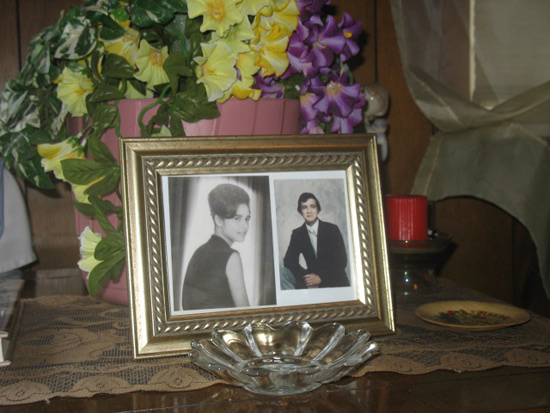
Celia McWee, 83, looked forward to Saturdays for 13 years. This was her favorite day of the week because she would use it to make herself pretty for her Sunday morning visit. But she wouldn’t go to church. She would visit the state prison. She would drive three hours from Augusta, Georgia, to Ridgeville, South Carolina, to visit her son, Jerry McWee. Jerry had been on death row since he robbed and killed John Perry, a grocery store clerk in rural Aiken County, in 1991. He was executed on April 14, 2004. He was 52.
“Saturday was an exciting day because it was my day to choose the outfit I was going to wear, to go to the beauty shop because I wanted to look my best for him,” she said, crying. “And Sunday going up there was exciting because it was something to look forward to. But on the way back, it was nothing but tears.”
For as long as her son was in prison, her weekly schedule kept her going, she said. On Mondays, Wednesdays, and Fridays, she would not leave the house until she received her son’s phone call. Tuesdays and Thursdays were her days to go grocery shopping, do the laundry, and vacuum. And then came Sundays, when she would share a ride with other inmates’ mothers to the prison. She would meet them at a gas station in Columbia, South Carolina.
Although her son was executed four years ago, not a day goes by that McWee does not recall the sound of his shackles dragging on the floor of the prison each time she visited him.
“The noise that most stands out in my mind is when they would bring them from one building to the other, and we could hear them walking with those chains around their ankles and around their waist and their wrists,” she said. “That is torture. I mean, to see your son being brought in worse than you do to a dog.”
McWee’s house is filled with pictures of her son. She proudly reminisces about the day Jerry got married and when, despite having only a high school education, he joined the police force. Then she shows a black-and-white print of Jerry in an emergency medicine technician (EMT) uniform. After two years as a police officer and five as a firefighter, Jerry had decided to make his life all about helping others in need. That is when he went back to school to study emergency medicine.
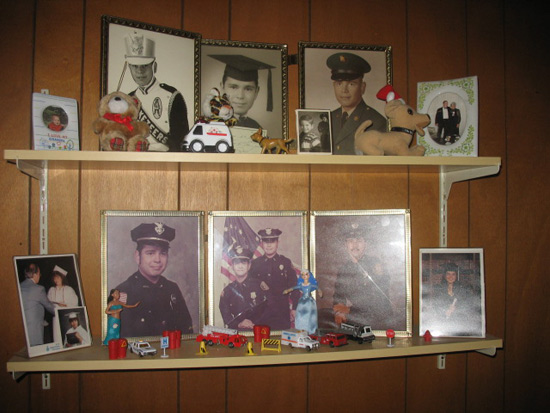
“He was the kind of guy that would go out of his way to help others,” she said. “He was a people person like me, used to helping the ones in need. Never would I have imagined this could have happened to my family. Everything was so nice and dandy, and it took so little time to turn things around. It is true he is in a much better place now, but I still feel he should be with me instead.”
McWee’s feeling is common to many relatives of inmates executed by the state. They are trying to recover from the trauma of waiting many years for their loved one’s scheduled death. But often their suffering is made worse because many people still do not recognize their pain as legitimate.
Zipped wounds
Like McWee, Bill Babbitt had a tough recovery. His younger brother Manny, a decorated Vietnam War veteran severely affected by post-traumatic stress syndrome, was executed at San Quentin State Prison on his 50th birthday — May 3, 1999. He had been charged with robbing Leah Schendel, an elderly woman who died of a heart attack during the crime in Sacramento, California.
What makes Babbitt feel better is touring the country to talk about his brother’s “unfair” execution; Babbitt is a member of Murder Victims’ Families for Human Rights (MVFHR), a group founded in Philadelphia in 2004. The group offers support and advocacy for victims.
He gives his testimony using what he calls “the power of remembrance,” letting his “zipped wound” open, and pouring out what he thinks needs to be said about Manny’s case. He is trying to educate the public about why the death penalty was unnecessary in his brother’s case. Yet many still consider his efforts to be those of a “second-class victim” who is defending a criminal, he said.
“My job is to educate and tell them, ‘Hey, you lose a rabbit or a dog or a cat, and you grieve over it,’” he said. “‘Manny was a human being. Why should I not grieve over him just as well?’ It is the unfairness of that I have to talk about.”
A trail of victims
The families who survive the state execution of their inmate relative are still not specifically referred to as “victims of abuse of power,” as defined by the United Nations General Assembly’s 1985 Declaration of Basic Principles of Justice for Victims of Crime and Abuse of Power.
Article 18 of the declaration defines a victim of abuse of power as a person “who, individually or collectively, [has] suffered harm, including physical or mental injury, emotional suffering, economic loss or substantial impairment of [his or her] fundamental rights, through acts or omissions that do not yet constitute violations of national criminal laws but of internationally recognized norms relating to human rights.”
In some countries, including the United States, killing by lethal injection is not considered an abuse of power. The declaration does not include the death penalty as a “violation of internationally recognized norms relating to human rights.”
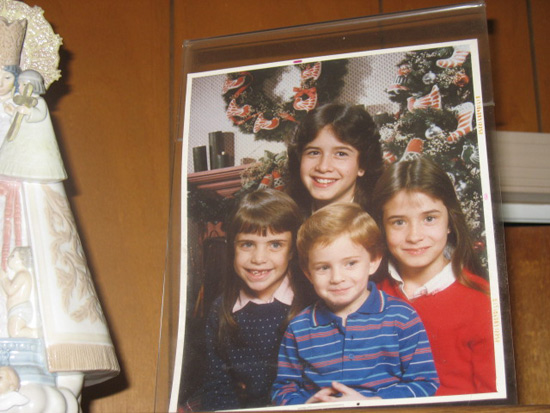
“But these people [families of death row inmates] have, in many ways, suffered a trauma, and their experience, in many ways, parallels the experience of survivors of homicide victims,” said Susannah Sheffer, director of No Silence, No Shame, a project of MVFHR.
The problem is that people don’t think of the inmate as someone who might have a family who will grieve when he is executed.
“Families of the executed are invisible victims, hidden victims. People are not even thinking through the fact that when an execution is carried out, it’s going to leave a grieving family,” Sheffer said. “A lot of people hold the family responsible, [a] kind of ‘guilt by association.’ They think this [the inmate] is a monster, so the parents must have created that.”
Jerry McWee’s mother said she is haunted by the image of her son strapped on the execution bed, blowing her the last kiss. She also said she was not the only one to suffer from her son’s death.
“It is a horrible, horrible experience to have to go through for years. It not only punishes the inmates, it punishes so many people,” said McWee. “One of Jerry’s daughters, Misty, exactly one year after his execution, tried to commit suicide. She cut her wrists, because she said she had to be with her father and that she did not belong on this earth.”
The legacy of guilt
Babbitt has been battling feelings of guilt instead. Babbitt turned Manny in to the police, and later he was not able to stop his execution. Babbitt believed his brother’s death was particularly unfair because his brother suffered from a mental illness. It was out of desperation and fear that his brother would commit more crimes that Babbitt decided to collaborate with the police, who promised him his brother was going to be fine, he said.
That is why he told Manny to go out to play some pool, when in fact the police were waiting outside of his house to arrest him. But Babbitt did not expect Manny to be convicted and sentenced to death. The hardest part of all was having to explain to his mother why he let that happen, he said.
“My mother loves me, and I know she has forgiven me for turning Manny in. The problem is I have not forgiven myself for promising Ma that Manny would not get executed,” he said. “I took a gamble with my brother’s life, and I lost.”
Since the day Manny was executed, Babbitt has not felt strong enough to see his family, even on holidays. He believes he is not “worthy of their love and trust anymore,” he said. He feels uncomfortable around them even though they forgave him for what he did.
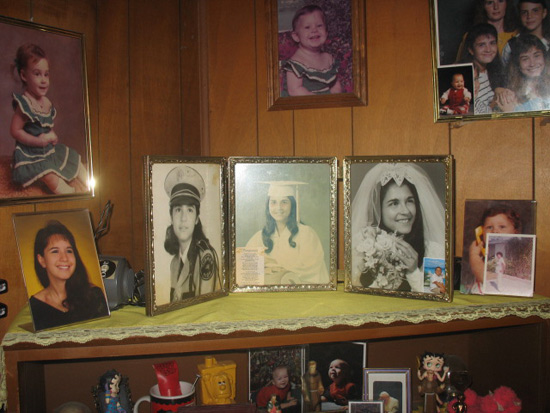
“If it wasn’t for my faith in Jesus, I would have killed myself. But I didn’t want my family to have to go to another funeral. I had to be strong and live to tell that story,” he said. “I will see my brother again when my time is up on Earth.”
No Silence, No Shame
Babbitt and McWee know each other well now. They met at No Silence, No Shame’s first gathering for families of death row inmates in Texas in the spring of 2004. The conference was organized to allow people who share the same grief to share their stories with one another.
According to Renny Cushing, director of MVFHR, the project is now trying to “put a face with the name of the family of the condemned prisoners,” by bringing the testimonies of these family members into courts. Cushing said the hope is that juries judging a death row case will consider these testimonies before announcing their verdict.
Cushing is also a survivor. In 1988, his father, Robert Cushing, was killed through his screen door at his home in New Hampshire by two bullets fired by an off-duty policeman. Officer Robert McLaughlin Sr. had a dirty record: He had killed his best friend, had taken part in an armed robbery, and had arrested an elderly town woman for no good reason, according to Cushing in his testimony in "Forgiving the Unforgivable” on MVFHR’s website. Cushing and his brother had been keeping an eye on the officer ever since, and McLaughlin didn’t like that pressure, said Cushing. That is why McLaughlin went to the Cushing house that night — to settle the score, so to speak, but he shot the wrong person, said Cushing in the testimony.
“If the state is going to kill someone’s father, we would like to have the court think about what that would mean, and the people who are most effective [at] talking about that are individuals [whose] father was executed when they were children,” Cushing said.
On average, 50 to 60 people are executed every year by the government, and they typically have three family members each. That means 150 to 240 more victims are created annually, according to the Death Penalty Information Center.
No Silence, No Shame is trying to reduce those numbers by making the public aware of these survivors’ experiences, to show the ripple effects of the death penalty.
Studying loss
Sandra Jones, a research sociologist and professor at Rowan University in New Jersey, released a study on the issues of grief and loss faced by the families with a relative on death row.
Jones spent years building relationships with families of death row inmates. She has taken it upon herself to bring kids of inmates to see their fathers in the Delaware County Prison in Pennsylvania when their own family members refuse to do so.
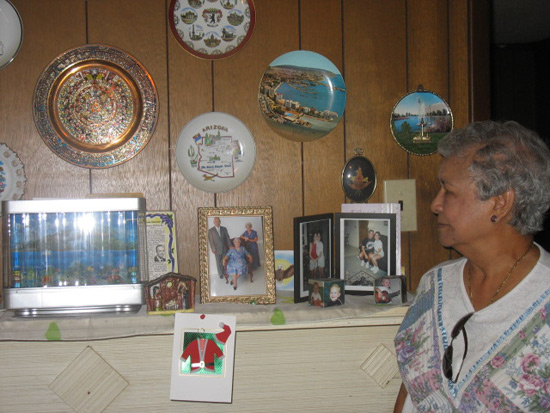
She became particularly close to Brian Steckel’s family. Steckel was convicted of raping and killing 29-year-old Sandra Lee Long. Jones witnessed Steckel’s execution in 2005. She is now writing a book about her personal experience with death row inmates’ families. She said the government ignores these families because it feels guilty.
“If the system gave these families the attention they deserve, it would come across [as] really hypocritical, because they are the very system that is killing their loved ones,” she said.
She also explains that the reason death row inmates’ families are often forgotten is that the survivor victims themselves do not want to be put in the spotlight, since they feel guilty for and are ashamed of their loved ones’ mistakes.
“The family gets criminalized along with their loved ones, and stigmatized to the extent that they don’t feel comfortable coming out and demanding attention because they feel guilty. They have a lot of guilt and a lot of shame. They [ask] themselves what they could have done differently,” she said.
“Writer Elizabeth Sharpen sometimes refers to them as the ‘double losers,’” Jones said. “A lot of these guys on death row have murdered a wife or an uncle or somebody within the family, and so the surviving family members are put into this position where if they support and grieve the loss of the loved one on death row, they are made to feel they did not really love the one who was murdered.”
Losing a child to the death penalty becomes a never-ending loss, one “similar to having a disabled child that you are grieving for every unmet milestone he misses throughout life,” said Jones. It becomes a “wound that never heals and keeps opening up with every failed appeal.”
Between losing a child to a murderer and losing one to death row — as is the case for McWee — the latter seems to be the more painful of the two because of the “never-ending wait.”
Having to wait for your son to be executed is “horrible, because you know it is coming, but you don’t know when,” said McWee, whose son, Jerry, was executed 14 years after her daughter, Joyce, was murdered by Joyce’s husband on December 31, 1980.
“[My daughter’s murder] was a shock, but [it was] nothing compared to the death penalty hanging over your head for 13 years,” she said. “News of her murder came unexpectedly, [but] the wait is horrible. One day he called me at 12:30, and he said, ‘Mother, I have been served.’ I had no idea what he meant. All I knew was that lunch was served at 11:30. So I said, ‘What [do] you mean, you have been served? What did you eat for lunch?’ So he said, ‘Mother, you don’t understand. I have been served with my death warrant — they have given me my day of execution.’”
Murder is murder
Even murder victim families sympathize with state execution survivor families, finding it unjust that their pain is labeled differently from theirs.
The Rev. Walter Everett, a pastor at St. Jones United Methodist Church in Sunbury, Connecticut, lost his son, Scott, in 1987. Scott was murdered by Mike Carducci in Easton, Connecticut. The pastor has been part of MVFHR since it was founded. He said he feels close to parents whose children are on death row.
Everett said it is important to educate people about the death penalty without making a distinction about different victims. He travels around the country to speak about the experience he shares with many families whose loved ones have been executed under the death penalty.
“I see them just as much a ‘victim’ as I am. That person, regardless of what their son or daughter has done, or their loved ones, they still love them, so they become a victim when that person is killed,” he said. “Since I got to know several people whose family members were executed, I see the pain they have gone through, and I believe their story should be told as much, because their pain is just as deep as my pain.”
Everett took part in a vigil in California to stop the execution of Clarence Ray Allen, a 76-year-old, and at that point blind and in a wheelchair. Allen was put to death on January 17, 2006, for planning three murders from his cell while serving a life sentence.
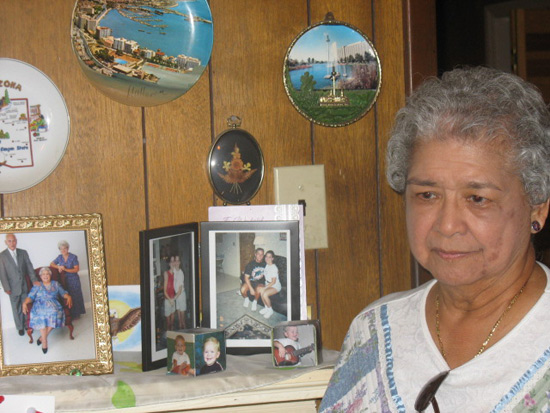
“I went out there and I met his children. Lovely people. And they hurt, they pained as he went through that,” he said.
Former death row inmates who have been exonerated share the belief that their families’ grief rarely receives attention. Since executions now take place behind closed doors, the system has become “sterile,” said Kirk Bloodsworth, the first person on death row to be exonerated because of DNA evidence.
Bloodsworth served nearly nine years in a Maryland prison for the 1984 rape and murder of nine-year-old girl he had never met.
“They don’t want to show the ‘crying mother’ over the executed son. No matter what he has done, he is still paying for that, and they don’t show that part of it,” he said. “She has got no say. She raised a murderer. That is how they are looking at her, and that was not her fault, necessarily.”
Bloodsworth regained his freedom on June 28, 1993, but his mother, Jeanette, did not live to see him walk out of prison. She died earlier that year. Bloodsworth was taken in chains to see her body, but prison officials refused to allow him to attend the funeral.
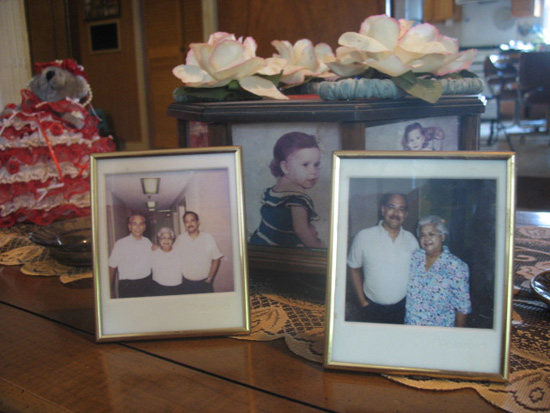
“My mother went through hell watching me. I was her son, and I was going to be executed, and nobody cared about a word she said. I thought that was a terrible way to have to treat somebody,” he said.
Rob Warden is the director of the Center on Wrongful Conviction in Chicago, and has been a legal affairs writer for more than 25 years. He said that while the stories of inmates’ family members are not necessarily ignored, the focus is often on the person “walking out of the door.”
“The stories of relatives of wrongful conviction in general tend to be overlooked,” he said, “because they are so overshadowed by the poignancy of the innocent person or the person who was executed himself.”
This does not imply that these stories should not be told. On the contrary, they should not be forgotten, Warden said.
“We should understand that when we execute somebody, no matter how heinous that person might be, it is over for that person,” said Warden. “But the pain that is inflicted on parents, or siblings, or children, is permanent. It is everlasting. It will be there. It is ongoing.”
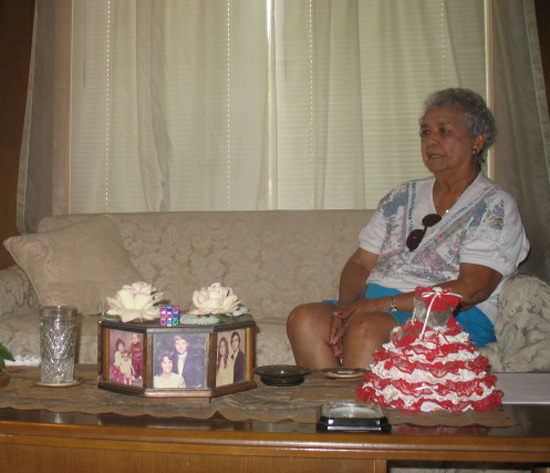
- Follow us on Twitter: @inthefray
- Comment on stories or like us on Facebook
- Subscribe to our free email newsletter
- Send us your writing, photography, or artwork
- Republish our Creative Commons-licensed content

